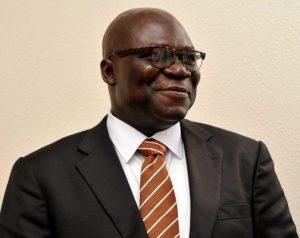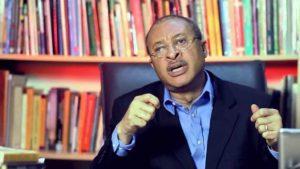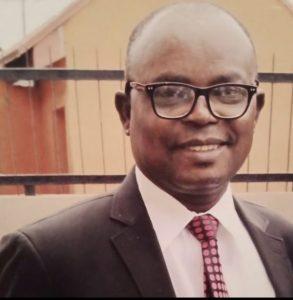IN June 1948, Sir Adeyemo Alakija, President of Egbe Omo Oduduwa, was in Ile Ife with other leaders to inaugurate the Egbe. At that event with the organisation’s founder, Chief Obafemi Awolowo, Alakija spoke strongly to the imperative of a ‘big tomorrow’ for the Yoruba race. “This big tomorrow,” he said, “is the future of our children…How they will hold their own among other tribes in Nigeria…How the Yorubas will not be relegated to the background in the future.” Part of the broad mission of that organization was “to accelerate the emergence of a virile, modernised and efficient Yoruba state with its own individuality within the Federal State of Nigeria.” That is the philosophical foundation that birthed the obstinacy to certain principles you always see in the Yoruba of Western Nigeria. Despite the severity of today’s storm, you can see that the apple still falls not far from its tree.
Those ancestors were well prepared for the weather that awaited them. They came with a complete package for their voyage to freedom from want and humiliation. The core elements of their mission were carefully encased in an anthem to guide their journey. Some call it Yoruba anthem; some say it is Oodua anthem; still, there are some who put the Afenifere/Action Group tag on it. I don’t care what name it bears. Anthems are totems of identity; they set boundaries and define values; they are hymns of fervour. What interests me is not just the surface but the hidden meanings in the verses. The opening lines may be plainly lost to friends and foes, but they are an open declaration of where the responsibility of every Yoruba person should be. Isẹ́ wà fún ilẹ̀ wa/ Fún orilẹ ìbí wá – there is a responsibility but it is to no artificial entity; it is to their homeland, the land of their birth. And the closing lines: Ọmọ Odu’a dide, bọ́sí ipò ẹ̀tọ́ rẹ/ Iwọ́ ní imọ́lẹ́ gbogbo adúláwọ̀ (children of Oduduwa, stand up and take your rightful place (because) you are the light of the black race). Anthems are not flight of fancy songs. They are music for war and for victory. Yoruba’s political ancestors were not cowardly sell-outs. When they sang “Ìgbagbo wa ni wipé b’áati b’ẹ́rú lab’ọ́mọ” (It is our belief that the freeborn and the slave are born equal), they were repudiating today’s insult of one law for the north another for the south. They also sang and affirmed in that anthem that “unity and freedom should be our pursuit (Ìsọ̀kan àt’òmìnira ni k’ẹ́ẹjẹ ká máa lépa”). A generation that declared ‘freedom’ as the primary object of their mission rejected the noxious Nigeria of serfs and masters. On their watch, the Nigeria Police would not become the Northern Nigeria Police Force arresting and trying southerners for offences committed in broad daylight by northerners.
The anthem ruled the Western Region during its years of goodness and plenty. Then the ship of state went adrift and the cadence of the song was lost to the locusts. The people started singing in alien tongues, binding demons and cuddling the devil. Rauf Aregbesola’s Osun State exhumed it and adopted the melody of its sound some years ago. Rauf’s successor, Gboyega Oyetola is singing it with passion. Two, three weeks ago, Governor Rotimi Akeredolu took that song of strength to his executive council. He led the cast having lately donned the armour of Yoruba nationalism. A government circular last week came out making it compulsory for all in the service of Ondo State to sing this song from the past every day.
That anthem is truly the song for this day of eight masquerades, six bean cakes. I attended a public event last month in Osogbo and saw stars in the eyes of the mass singing the anthem. They looked very down but the pitch of their song showed they were not out. I have also seen a huge elite excitement about – and endorsement of – the Akeredolu policy as a leap to the good old past. This has understandably made some elements from Osun State scramble to own the credit for the comeback of the anthem. Ethnic solidarity and its nationalism sibling are in upswing because Nigeria is in kidnappers’ den. It is now the property of bandits. A scramble for freedom and space is thick in the air, choking. There is an elite love for Yoruba anthem now, and you ask why? Is it because they know that every battle must have a battle cry? Or like the ravaged men of folklore, they are riding the warhorse back to their ancestors for solidarity, safety and succour? Or they are weaponising a collective song for liberation from captivity?
The great men of the 1940s, 1950s and early 1960s composed and sang the Yoruba anthem as a symbolic form of the great work they were doing and a reminder of what remained for them to do. They did not spread devastation and then scent it with sweet notes. Each of the verses they sang was a cord of covenant with God and their conscience. I have spoken about the June 1948 Ife Declaration by the Egbe Omo Oduduwa. The leaders did not just declare their mission, sing the Egbe’s anthem and go home to sleep. They sketched out the roadmap to that rosy future they envisioned and followed it. They resisted distractions without condoning insults. They fought and vanquished every demon they found on the way to their moon. They realised very early that education was the key that would unlock the door of that future. They quickly saw deterioration of education among the Yoruba as a threat to the unborn they sought to nurture. At a time during that beginning, there were 120 students at the University College, Ibadan, only 40 of them were Yoruba. The political leaders were horrified. They took several practical steps, touring the land, preaching the gospel of learning and knowledge. They were practical enough to know that sermons alone would not birth a ‘big tomorrow’ for their people. There must be concrete actions: “In order to train highly qualified teachers, the Egbe awarded 17 scholarships to Yoruba students at the University College, Ibadan who were required to teach exclusively in Yorubaland after their qualifications. The cost of the scholarships per annum was estimated at £1,000. The Egbe also awarded scholarships to secondary school students.” (See Olaniyi, R. in Ife Journal of History, Vol. 6, No. 1; May 2013 at page 112). Then the big bang happened on 17 January, 1955 when Chief Awolowo introduced Free Primary Education registering 391,859 children in primary one, and 811,432 pupils in all classes in 6,274 schools in all the provinces of the Western Region. With perfect propriety, the leaders of that era carried the regional meal to the people and returned home with the chinaware of integrity. Whatever glimmer you still see in Western Nigeria’s skies today is courtesy of that stellar team of visionary leaders.
Today’s politicians carousing the Yoruba anthem are doing well. But they should read what they hold line by line the way people of creed internalize articles of faith. They should underline the key messages there and ask themselves if they do what they sing. They should not just go back to the past for the song, its melody and its mobilizing properties; they should go back there for lessons in prudent planning and service delivery and for courage in defence of their people. Anyone who voluntarily puts himself forward to govern a people must subscribe to the creed, the spirit and soul of that people’s song of faith. You cannot sing the song of love and freedom but serve hatred and subjugation. It is not the frequency of the chant of an anthem or its solemnity or its widespread use that proves its potency. Britain’s Labour Party sings its ‘The Red Flag’ anthem to the dirge-tune of Germany’s Tannenbaum in solidarity with the poor. That has not insulated it from charges of distancing itself from the poverty of the ordinary people. When politicians of poisonous politics, who undermine the people, who take prisoners of those that elected them; who are afraid to confront and fight evil and who are disdainful of truth, sing and dance to beautiful sound bites and beats of ancestral glory, they are insulting the decent memories of the past.
















